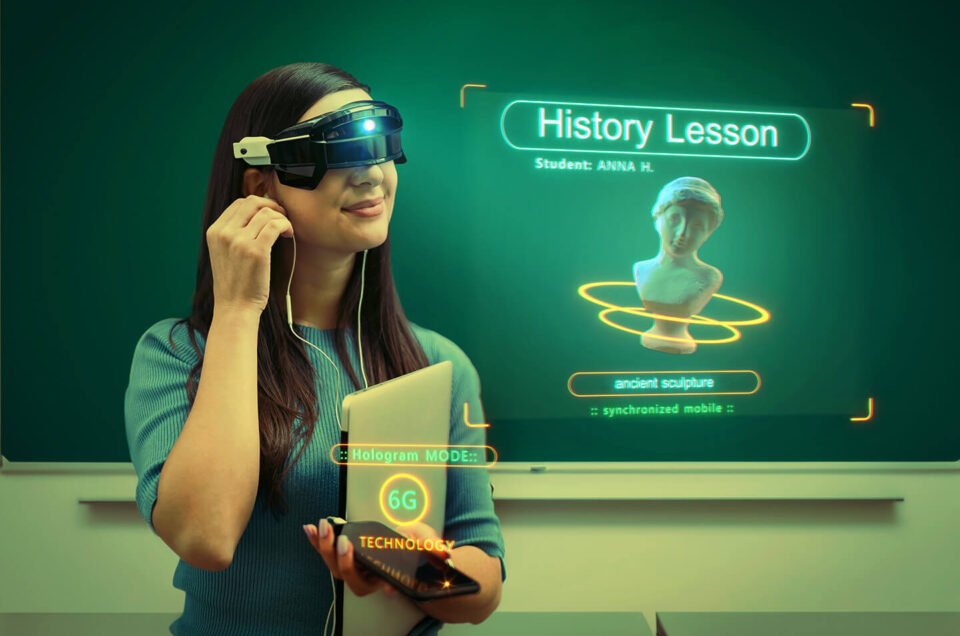Smart Boards and Beyond: Transforming Classrooms with Tech
Introduction
The integration of technology, particularly Smart Boards, has revolutionized modern classrooms. This article dives into the transformative impact of Smart Boards and their implications for education.
Understanding Smart Boards
Smart Boards are interactive learning tools that enable educators to create dynamic and engaging lessons. Through Education Technology, they offer diverse possibilities for interactive and multimedia-based teaching.
Benefits of Tech in Education
The adoption of Smart Boards and similar technologies brings forth enhanced learning experiences. Collaboration tools embedded in these boards facilitate group activities, fostering a more interactive and inclusive learning environment.
Implementing Smart Boards
In modern classrooms, Smart Boards play a pivotal role in transforming traditional teaching methods. Their visual learning aids captivate students’ attention, making complex concepts easier to comprehend.
Role in Active Learning
Smart Boards actively engage students by encouraging participation and hands-on experiences. This technology revolutionizes passive learning into dynamic, interactive sessions, fostering a deeper understanding of subjects.
Impact on Teacher’s Role
Educators leverage Smart Boards to facilitate learning, adopting innovative teaching methods that cater to diverse learning styles. These boards assist in creating interactive lessons, fostering a student-centered approach to education.
Enhancing Learning Outcomes
The integration of Smart Boards has shown promising results in improving student performance. Their usage correlates with enhanced grades and improved knowledge retention among learners.
Smart Boards vs Traditional Methods
Comparing Smart Boards with conventional teaching methods showcases the evolution of education. These boards offer a significant shift towards a more interactive and engaging classroom experience.
Addressing Challenges
While the benefits are profound, integrating Smart Boards requires addressing challenges such as effective tech integration and the need for adequate training for educators.
Success Stories
Numerous success stories highlight the transformative impact of Smart Boards in education. These stories exemplify how this technology positively impacts student progress and overall educational outcomes.
Future of Smart Boards
Continued advancements in Smart Board technology promise an exciting future for Education Technology. These boards will likely be at the forefront of EdTech trends, shaping the future of learning.
Smart Boards and Beyond: Transforming Classrooms with Tech
Smart Boards represent a significant leap in transforming traditional classrooms. Their integration has revolutionized teaching methodologies, fostering an interactive and immersive learning experience. These boards go beyond conventional methods, offering a gateway to an enhanced educational journey.
FAQs
- How do Smart Boards benefit students? Smart Boards engage students through interactive lessons, enhancing their understanding and knowledge retention.
- What makes Smart Boards different from traditional teaching methods? Unlike traditional methods, Smart Boards offer dynamic, multimedia-based lessons, creating a more engaging learning environment.
- Are there challenges in implementing Smart Boards? Yes, challenges include effective integration into the curriculum and providing sufficient training to educators.
- Can Smart Boards improve student performance? Studies indicate a positive correlation between Smart Board usage and improved grades among students.
- What does the future hold for Smart Boards? Continued advancements will likely integrate more innovative features, further revolutionizing education.
- How do Smart Boards impact teachers? Smart Boards empower educators to adopt diverse teaching methods, enhancing their role as facilitators of interactive learning experiences.
Conclusion
The incorporation of Smart Boards in classrooms signifies a profound shift towards a more engaging and interactive educational experience. As technology continues to evolve, these boards will remain instrumental in shaping the future of education.





